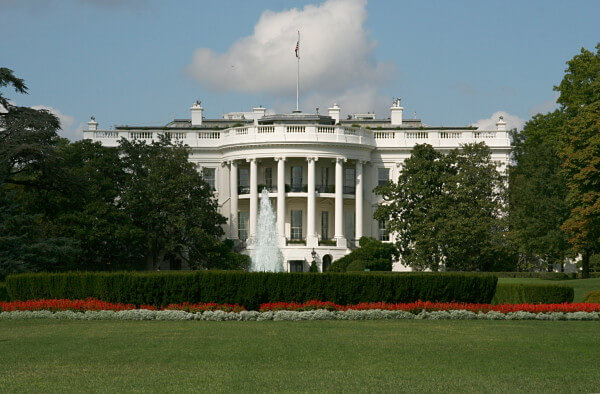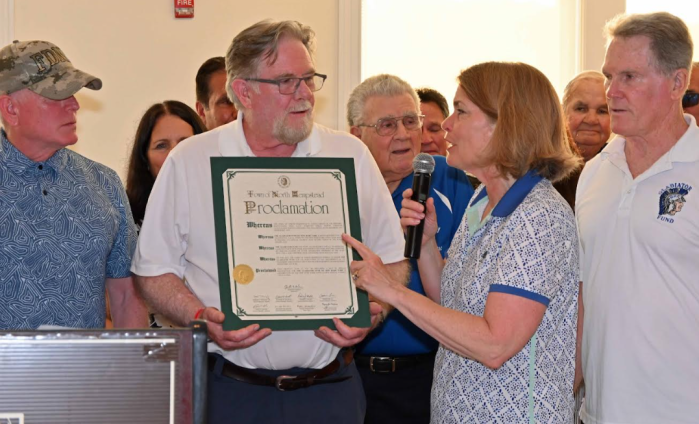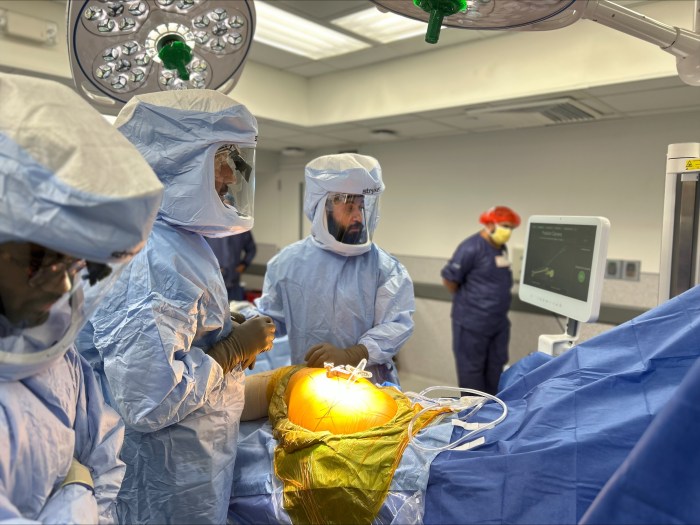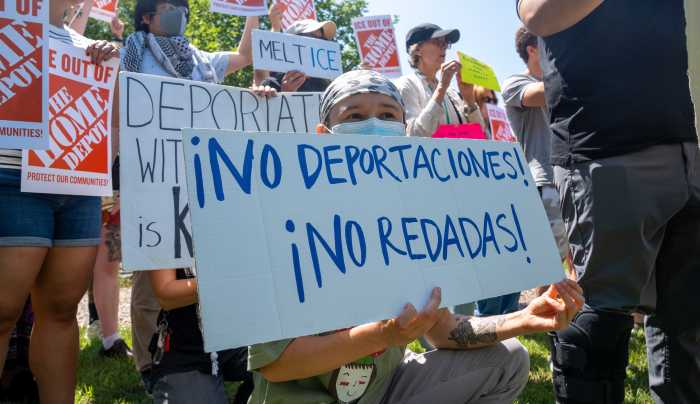Cohen Media
Rated PG-13, 3 stars
It’s not uncommon for those who rightly resent being biologically categorized on government questionnaires, to defiantly write in ‘human’ when asked to indicate their race. And the same holds true in its own compelling but curious way for the switched at birth DNA-driven identity crisis drama, The Other Son.
A French production directed by Lorraine Lévy and filmed in Israel and the West Bank, The Other Son draws two disparate families from that divided space into a traumatically personal conflict of their own. And meant to symbolically mirror and possibly negotiate the greater tumultuous politics of that region.
The relative stability of the two families in question – the Israeli Silbergs and the Palestinian Al Bezaaz kin in the West Bank – is shaken up when eighteen year old Joseph Silberg (Jules Sitruk) puts his musical aspirations on hold to report for mandatory military duty. But an army blood test confirms that he could not be the child of his parents. Which is in itself odd, that a military on such permanent alert would be so thorough, especially since Joseph’s father is a high ranking commander.
And what comes to light, is that during a Gulf War missile attack near the Haifa hospital where Joseph was born, a Palestinian mother gave birth at the same time. And in the ensuing confusion, the babies must have been released to the wrong women.
In any case, Joseph’s distraught parents first waver, then seek out the Al Bezaaz family. And Yacine (Medhi Dehbi), their designated ‘other son’ in question, who has returned home for a visit from his medical degree studies in France. While alternately fearful and hopeful mixed emotions become entangled, compounded by a profound cultural divide along with two fathers into deeply disapproving denial.
Though lacking subtlety in the conveying of its intricate plots points, the story, not unlike the families involved, is infused with a rare sensitivity and compassion. And at the same time never relinquishing to the temptation to overload the psychological conflicts with exaggerated melodramatic manipulation, to which they could easily fall prey.
And in an intriguing casting switchup in its own right that may seem solid on paper but confuses and distracts on the screen, Lévy has placed in the roles of the Palestinian and Jewish youth respectively, French actors who are the opposite in their own ethnic origins. And who additionally, look nothing like their biological parents in the film either.
Okay, we get it. When it comes to the larger race – which is and hopefully will always be ‘human’ first and foremost – physical differences shouldn’t matter. On the other hand, to cautiously refrain from taking sides in any wishful thinking regard, can potentially benefit neither.
And what has always tended to divide people through history extends far beyond physical or cultural ‘can’t we just all get along’ pleas, to far more complex issues of economics and political power and domination. And those critical factors should never be buried, even in fiction, under sentimental appeals which change nothing.
 THE PROSECUTION OF AN AMERICAN PRESIDENT
THE PROSECUTION OF AN AMERICAN PRESIDENT
Independent Pictures
Unrated, 3 stars
There’s a joke that stands out in the nazis on the moon sci-fi movie satire Iron Sky, that the only fair fight on the part of the United States in its many invasions and occupations around the world, was with Hitler’s Germany. And it may not be a laughing matter after all, especially to famed Los Angeles District Attorney turned author, Vincent Bugliosi. Who passionately puts forth the case in the documentary, The Prosecution Of An American President, that former President Bush in calling for war on Iraq, should be tried as a criminal for murder.
In no way merely an inflammatory fame seeker or sensationalistic tabloid scribe, Bugliosi is best known for his prosecution of Charles Manson and his co-conspirators in the 1969 Tate-LaBianca murders and the book he wrote about it, Helter Skelter. And in a subsequent work that he penned in 2008, The Prosecution of George W. Bush for Murder, Bugliosi urged that Bush should be put on trial, I’m guessing as a combo serial killer and mass murderer, for deceiving Congress into approving the invasion of Iraq. Primarily because his contentions upon which that assault was based – the imminent threat to the US of weapons of mass destruction, in addition to Iraqi President Saddam Hussein’s involvement in 9/11 – were deliberate and calculating lies.
And though US involvement in Iraq may have subsided, Bugliosi hasn’t set aside his efforts to put Bush on trial for premeditated murder in a standard criminal proceeding. And assisting him in making that case and bringing it to the attention of the American public, are the filmmakers of The Prosecution Of An American President, Dave Hagen and David J. Burke.
The bulk of the documentary is a recording of Bugliosi painstakingly presenting his points, as he would any murder case over the years, to a classroom at UCLA’s law school. And this is primarily because, as Bugliosi states in a private interview on camera, the media has in large part refused to interview him about this highly provocative topic. Along with great difficulty in even getting his book published, and then later being turned down for advertising spots on the air. And though the filmmakers make no pretense of being on neutral ground concerning their subject matter and clearly in Bugliosi’s corner, Harvard legal scholar Alan Dershowitz does make a talking head appearance in the film, to counter with a rather bland argument to the contrary.
The Prosecution Of The American President, despite its generally static and limited visual scope, fascinates in a larger way, by bringing up that rare topic touching on the thin line that always tends to exist between murder and war. While any explanation as to why Bugliosi – or anyone else in a prominent position for that matter – hasn’t come up with this notion of political culpability in war considering that exceedingly long US history, is never addressed in this essentially tip of the iceberg approach to filmmaking. But the hope is put forth, that such a preliminary effort may serve as a deterrent to such presidential impulses in the future.
And in their open-ended conclusion to the documentary, Hagen and Burke indicate that Bugliosi remains persistent in his search for a grand jury to indict Bush somewhere in this country, where fallen US soldiers stationed in Iraq once resided. Intimating a somewhat suspenseful theoretical hung jury for the time being.



































